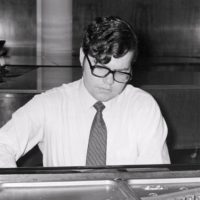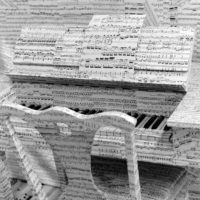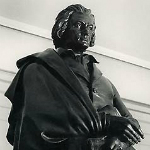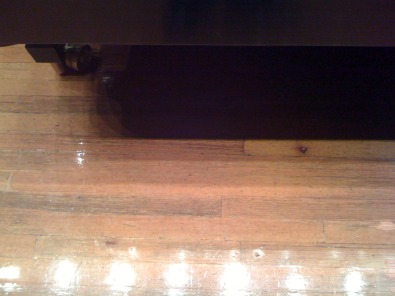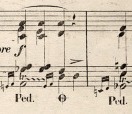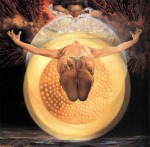At a memorial event in Jordan Hall in Boston on September 29, 2024, these were my remarks: This concert hall, this space, the vibrating air in here, the music that’s been heard, those sounds. The piano playing done on this stage... In 1907, Ferruccio Busoni played the piano right about ... here. Arthur … [Read more...]
Evidence
My introduction of Emanuel Ax in May in Boston, as he received an honorary doctorate from New England Conservatory. "For a long time the listeners of the world have admired -- for a long time, the listeners in the world have loved Emanuel Ax. Hearing him play Century Rolls, the piano concerto written in 1997 by John Adams for him, first played by Mr. Ax and the Cleveland Orchestra, I was thrilled. As I was thrilled hearing him play Brahms’ … [Read more...]
All in
During 2020, at New England Conservatory, it happened -- every piano piece by Ludwig van Beethoven was performed. There was a series of 12 concerts involving 73 different NEC students. All 36 piano sonatas were played, 21 sets of variations, and every other piano piece! Six of the concerts were played live during February and March. After the pandemic arrived, the rest of the programs were streamed during the fall. Studying remotely, many … [Read more...]
Construction Zone
“Down below, in the dark of the street lamps, Eusebius said, as if to himself: Beethoven—what lies within this word! Beautifully, within the deep ringing of the syllables, sounds an Eternity.” (“Unten im Laternendunkel sagte Eusebius wie vor sich hin: Beethoven — was liegt in diesem Wort! schon der tiefe Klang der Sylben wie in eine Ewigkeit hineintönend.”) -- Robert Schumann, 1835 Also, this begins with a statue. Every day I'm in the Jordan … [Read more...]
Catalyzing Adulteration
I'm sipping a single-barrel bourbon. Rather strong. I add some drops of water, and then a few more. And the extraordinary, intense dark taste comes into sharp focus. It's like adding adrenaline to my playing of Brahms's music in Jordan Hall. Or adding salt to soup (more if it's cold). Or adding momentary touches of pedal to an already carefully played legato phrase of piano music. … [Read more...]
To the left
There was a nail in the old Carnegie Hall stage floor that marked the precise spot where the leg of Vladimir Horowitz's piano was to be positioned. Neurosis? Or careful attention to sonic detail? I was not very satisfied with the way I was playing -- near the end of a three-hour rehearsal at Wigmore Hall in London. My friend David Rick suggested that the piano be moved back, much closer to the rear wall of the Wigmore stage. The move was made … [Read more...]
Rattle
The pianist Fou Ts'ong played a solo concert in Jordan Hall including Chopin's Opus 35 Sonata. In the famous "Funeral March," he made an unbelievable racket with the left-hand trills. They were noisy, unpleasant, almost veering out of control. In a masterclass at New England Conservatory, during that same visit to Boston, Fou Ts'ong manifested such subtly refined attention to details of sound, and line, and phrase. Everything. But, those trills … [Read more...]
Ascent
There's a certain pride associated with rising melodic lines -- in much nineteenth-century music. Singing soars, and in soaring affirms something very positive about being human. As pitch rises, we might get louder, more tonally intense, more emotional. In other music, high registers are thin. Earlier instruments and techniques may corroborate this thinness: no steel "E" strings on eighteenth-century violins, singing voices differently … [Read more...]


